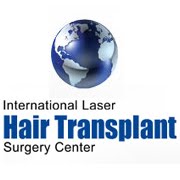After a hair transplant in Dubai, it is necessary to follow post-operative care and a balanced
diet to get the desired results. Magnesium deficiency can cause weakness as
well as hair loss. A high-protein diet includes chicken, fish, eggs, milk,
cheese, beans, and nuts. Omega 3 fatty acids are essential for various bodily
functions. Iron assists in transporting oxygen and essential nutrients to your
hair follicles, promoting hair growth, and works as an effective wound healer
after the surgery. Vitamin E is mainly found in vegetable oils, especially
sunflower oil, soybean oil, and corn oil. Research has shown that vitamin D
plays an important role in hair growth.
Essential Nutrients Intake After The Hair Transplant Surgery
Do you know our body supplies nutrients from our diet to the
other organs first, and only the leftover nutrients are supplied to the hair?
That's why nutritional deficiencies get reflected first in your hair
growth.
A deficiency of essential nutrients can weaken and thin the
hair, increasing hair fall and creating bald patches. After going through
a hair transplant in Dubai, it is necessary to follow post-operative care along with a
balanced diet to get the desired results.
What to eat after a hair transplant and what not to eat? Which
foods promote hair growth?
The growth of transplanted hair is difficult for people
suffering from nutritional deficiencies. It is important to make dietary
changes and consume the right nutrients in the required proportion. However, in
some cases, diet alone cannot meet the dietary requirements, and nutritional
supplements may be needed.
You are what you eat. It is important to include calcium-,
magnesium-, zinc-, iron-, protein-, and vitamin B-containing foods in your
diet. They help maintain the health of your hair follicles and stimulate hair
growth. Following are the foods that promote hair growth.
Magnesium participates in biochemical reactions at the cellular
level. It also helps to maintain glucose levels but also plays a role in
protein and energy production. Magnesium is essential for metabolic reactions
and better hair growth. Magnesium deficiency can cause weakness as well as hair
loss.
Hair is made entirely of proteins. Incorporate protein into your
diet. That's why during hair transplant recovery, a high protein intake is
recommended by doctors. A high-protein diet includes chicken, fish, eggs, milk,
cheese, beans, and nuts. These foods are rich in essential amino acids.
Omega-3 fatty acids are essential for various bodily functions.
Oily fish such as salmon and mackerel are good sources of essential fatty
acids. Vegetarian sources include flaxseed, walnuts, avocados, etc.
The vitamin B family incorporates vitamins 7 (biotin) and B12.
They play a very important role in your hair structure and growth. They are
also involved in the metabolism of proteins and fats. It facilitates better
wound healing. This is why doctors recommend B-complex and vitamin supplements
after a hair transplant. Foods that are rich in vitamin B include chicken,
meat, bananas, brown rice, nuts, and eggs.
Zinc deficiency can cause serious hair loss. That's why it is
important to include zinc in your diet after the hair transplant procedure. It
helps in tissue repair and collagen production. Cashews, spinach, and pumpkin
seeds are foods rich in zinc.
Hair loss occurs due to improper blood circulation over the
scalp. Iron helps in maintaining proper blood circulation over the scalp. Iron
assists in transporting oxygen and essential nutrients to your hair follicles,
promoting hair growth, and works as an effective wound healer after the
surgery.
Vitamin E is a fat-soluble vitamin that protects your cells and
tissues from free radical damage. Vitamin E is mainly found in vegetable oils,
especially sunflower oil, soybean oil, and corn oil. All nuts, such as peanuts
or almonds, are rich sources of vitamin E.
Vitamin A is a powerful antioxidant that stimulates hair growth.
However, excessive vitamin A can also be harmful and cause hair loss. Vitamin
A-containing foods include vegetables, oranges, carrots, pumpkins, and sweet
potatoes. Cod liver oil and beef liver are also rich sources of vitamin
A.
Vitamin C helps with iron absorption. Vitamin C-rich foods
include pepper, kale, kiwi, broccoli, berries, and citrus fruits.
Vitamin D helps in maintaining blood levels of calcium and
phosphorus and in strengthening your hair follicles. Research has shown that
vitamin D plays an important role in hair growth. Dairy products, mushrooms, cereals,
fish, and other seafood are good sources of vitamin D. Vitamin D2 is usually
found in vegetables, while vitamin D3 is found in sunlight and eggs. Include
green leafy vegetables in your diet after the procedure, as well as broccoli,
spinach, tomatoes, and peppers.
It is important to retain poor eating habits. Avoid processed
foods and excessive sugar consumption. Avoid alcohol and cigarettes after hair
transplant surgery. Furthermore, avoid any stress after the procedure. Avoid
fast food, cold drinks, and other foods that contain no nutrients. Take your
doctor's advice and follow the medications and supplements in the right
proportions. Maintain a healthy and balanced lifestyle. Exercise regularly and
manage your stress well. You will see great results from the hair transplant in Dubai.
